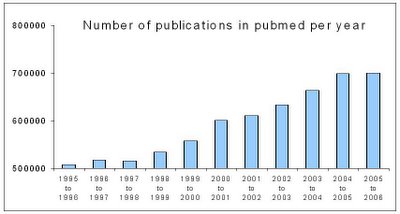Tomorrow is April fools day and there is a long tradition in the media to put out jokes on this day. Some years ago this was, for me, almost not noticeable. I knew that the newscasts in the different TV channels would have at least one spoof story. Maybe I would notice the joke in one or two newspapers if I actually read one that day. These days I get almost everything from the internet and it is no longer just from a handful of sources, it comes from tons of media sites, blogs and aggregators. So every year that I am more connect I notice more the 1st of April as the day where everybody goes nuts on the web. This year it even starts early has you can see by this gold fish story in the economist. Maybe spishine's post on quitting blogging was also an example of early April fools ;).
Tags:
